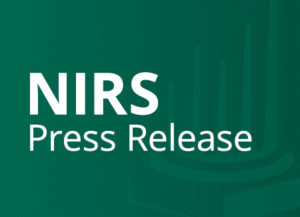November 24, 2008, Washington, D.C. – A new analysis of public pension investment data indicates that public plans exhibit prudent investment behavior – even during volatile market conditions.
The results are contained in a new report, “In it for the Long Haul: The Investment Behavior of Public Pensions,” released today by the National Institute on Retirement Security (NIRS).
“As the global financial crisis brings a renewed focus on retirement security, the report findings provide confidence in the management of retirement assets held by state and local pension funds,” said Beth Almeida, NIRS executive director. “The data indicates that these institutional investors have performed largely as they should: they are prudent in their asset allocation and ‘buckle down’ during adverse circumstances. This investment behavior positions the funds to continue providing a steady, predictable retirement income to workers in the most efficient manner possible during bull and bear markets alike,” she added.
“This analysis of public pensions’ past behavior can provide a guide as to how the funds may be reacting to today’s stunning market downturn,” said report co-author Dr. Christian Weller. “Our data suggest that public pensions followed well-established practices for prudent, long-term investing during the market plunge that occurred through 2001. Going forward, this is an indicator that public plans are well situated to recover from today’s financial crisis in a manageable way,” he commented.
Report co-author Dr. Jeffrey Wenger remarked, “The results underscore that public pensions are suitable for plan participants when debt and equity markets are tranquil or volatile. Policymakers, workers, and taxpayers should value the retirement safety and economic efficiencies of defined benefit pensions that exhibit professional and prudent asset management patterns.”
The analysis was based on U.S. Federal Reserve and U.S. Census Bureau public pension data from 1993 to 2005. The study concludes that public pension plans are prudent investors because they:
- Actively rebalance investments in response to price changes.
- Do not get caught up in a “herd mentality,” but rather follow the best investment practices in the industry. State plans, in particular, systematically follow the practices of performance leaders.
- Hold higher risk assets when funding levels are higher, and assess their financial situation before modifying the plan’s asset allocation. If anything, public pensions are somewhat overly cautious following periods of lower funding, indicating they avoid “chasing returns.”
- Hold smaller amounts of stocks when employers face higher contribution rates. This trend continued even after the 2000 bear market. This indicates that public pensions avoid pressure to invest more aggressively after experiencing losses.
Report co-author Dr. Christian Weller is associate professor at the University of Massachusetts McCormack Graduate School and senior fellow at the Center for American Progress. Co-author Dr. Jeffrey Wenger is assistant professor at the University of Georgia School of Public and International Affairs. The full research report can be accessed at www.nirsonline.org
NIRS will hold a conference call briefing on the report on Monday, November 24, 2008 at 11:00 AM ET by dialing (888) 285-4585, Participant Code 673385.
About NIRS
The National Institute on Retirement Security is a not-for-profit organization established to contribute to informed policymaking by fostering a deep understanding of the value of retirement security to employees, employers, and the economy through national research and education programs. Located in Washington, D.C., NIRS seeks to encourage the development of public policies that enhance retirement security in America.
